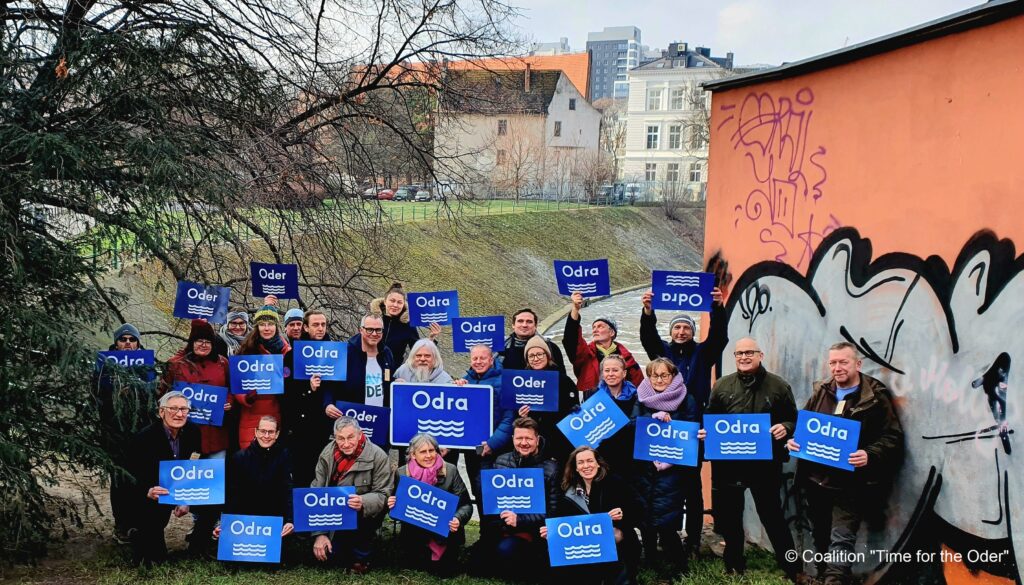International coalition criticizes sluggish government action

On 8 February 2023, organizations from the international coalition “Time for the Oder” and from the coalition “Save the Rivers” concerned about the situation of the Oder river met in Wrocław to exchange information and agree on joint initiatives. We want governments to take real action to reduce salinity, microplastics and other pollutants in the Oder.
Several months have passed since the environmental disaster, caused by the poisoning of the Oder River, took place. Unfortunately, the situation on the river has not improved significantly. The only thing saving us from another tragedy is the cold season. Higher water levels in the river and lower temperatures inhibit the bloom of golden algae still present in the waters of the Oder and Gliwice Canal. We are anxiously waiting for spring, because the salinity of the Oder is still very high. Golden algae are still abundant and as temperatures rise, the risk of them multiplying again and releasing prymnesin – a deadly poison for fish and mollusks – increases. Unfortunately, there is no clear and effective plan on the horizon to remedy the situation, and sewage and mine tailings water continue to be discharged into the river. Despite the fact that the Oder is a transnational river, flowing through the Czech Republic, Germany and Poland, there is no intergovernmental constructive cooperation on the issue. This is all the more astonishing since we are talking about a river important to three countries which are all members of the European Union.
In contrast to the governments, civil organizations from Poland, Germany and the Czech Republic are working closely together for the benefit of the Oder River.
On 8 February 2023, organizations from the international coalition “Time for the Oder” and from the coalition “Save the Rivers” concerned about the situation of the Oder met in Wrocław to exchange information and agree on joint initiatives. We want governments to take real action to reduce salinity, microplastics and other pollutants in the Oder finally. Plans for further regulation of the river and hydrotechnical works, pushed especially hard by the Polish side, will certainly not help the river’s ecological situation.
– Further regulation will not only negatively affect the rate at which the Oder river recovers its biodiversity, but will also weaken the river’s ability to clean itself. This carries the risk of even bigger disasters than the one in August last year. – says Dorota Chmielowiec-Tyszko of the Time for the Oder Coalition – We will do everything to counteract this. We are working on our own plan to heal the river, and we are inviting the governments of all the countries along the Oder to cooperate: Germany, Poland and the Czech Republic.
Further information:
Coalition “Time for the Oder”, www.saveoder.org
Save the Rivers Coalition, www.ratujmyrzeki.pl